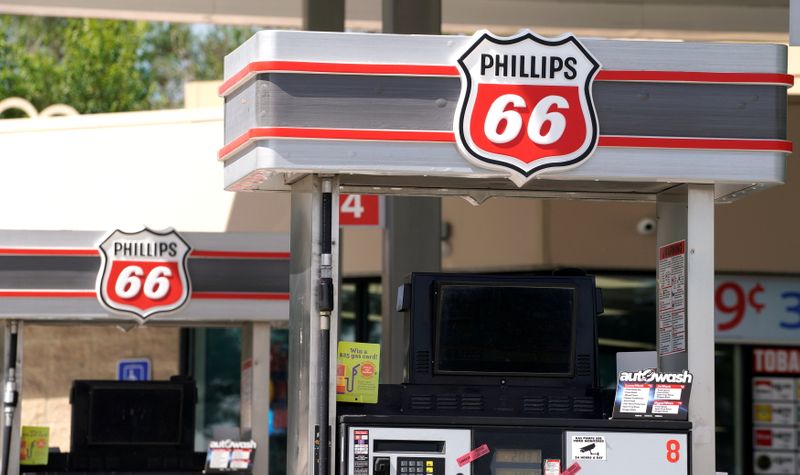(Reuters) -Phillips 66 said on Wednesday it will buy the remaining units of Phillips 66 Partners it does not already own for $3.4 billion, as the refiner aims to simplify its governance and corporate structure.
Phillips 66 Partners was formed by the refiner to own, operate, develop and acquire primarily fee-based crude oil, refined petroleum products and natural gas liquids pipelines, terminals and other midstream assets.
“We believe this acquisition will allow both PSX shareholders and PSXP unitholders to participate in the value creation of the combined entities, supported by the strong financial position of Phillips 66,” Chief Executive Officer Greg Garland said in a statement.
The all-stock deal, expected to close in the first quarter of 2022, will offer each outstanding Partnership common unitholder 0.50 shares of PSX common stock for each PSXP common unit.
The oil and gas industry has financed billions of dollar in pipeline and storage products under Master Limited Partnerships (MLPs) since former President Ronald Reagan signed legislation in 1986 allowing them as a way to spur energy investment.
However, several pipeline companies, largely oil and natural gas pipeline firms, have restructured in recent years after U.S. regulators said they will no longer be allowed to recover an income tax allowance as part of fees they charge to shippers under a “cost-of-service” rate structure.
“The Phillips 66 Complex has been frustrated with the midstream valuation and acknowledged the environment has shifted dramatically since the MLP was first conceived,” Spiro Dounis, analyst at Credit Suisse, said in a note.
The Alerian MLP Index, a gauge of energy infrastructure MLPs, is currently valued at nearly $200 billion.
The U.S. refining and midstream industries have consolidated in recent years, a process which accelerated after the coronavirus pandemic drastically reduced demand for transportation fuels.
“This roll-up suggests Phillips 66 may have not seen Phillips 66 Partners as a useful vehicle for industry consolidation, particularly given this likely would have required capital raises,” Jason Gableman, analyst at Cowen, said in a note.
(Reporting by Arunima Kumar in Bengaluru; Editing by Shinjini Ganguli and Paul Simao)

























